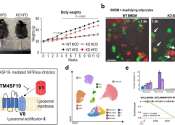Snakebites can destroy skin, muscle, and even bone—exciting progress on drugs to treat them
The World Health Organization estimates that 1.8 million to 2.7 million people are envenomed by snakes annually, resulting in upwards of 138,000 deaths.
May 21, 2024
0
0









